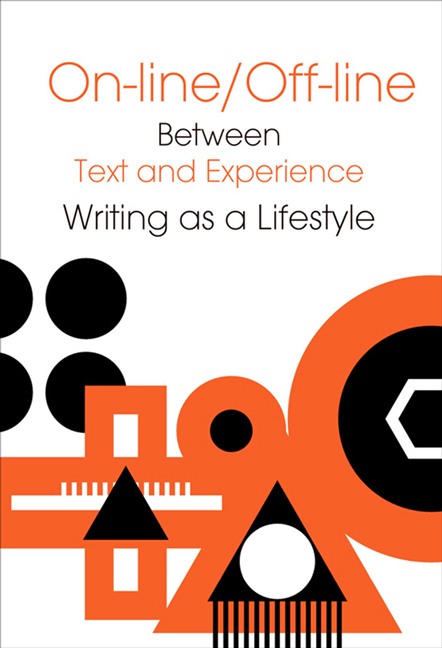Book contents
- Frontmatter
- Contents
- Editors’ Introduction
- ON-LINE/ OFF-LINE
- Literate Existence in the Digital Space. Contemporary Traces of Identity
- Text, Writing, School in Anthropological Perspective
- The Practice of Writing Fan Fiction: A Fan Fiction Writer's Tutorial
- I Write. You Write. They Write. The Literary Works of Fandom as a Factor in Integrating the Community
- Approaches Towards Shame in Contemporary Polish Literature
- People You May Know: Homosexual Men's Identity in the Time of Social Networking Services
- Contemporary Polish Essays: In Search of the Aura of Paintings and Photographs
- The Hybrid Work of Art as Experience
- Reincarnations of the Word: Media, Genres, Practices
- LITERATURE AND CONVERGENCE
Approaches Towards Shame in Contemporary Polish Literature
from ON-LINE/ OFF-LINE
Published online by Cambridge University Press: 12 January 2018
- Frontmatter
- Contents
- Editors’ Introduction
- ON-LINE/ OFF-LINE
- Literate Existence in the Digital Space. Contemporary Traces of Identity
- Text, Writing, School in Anthropological Perspective
- The Practice of Writing Fan Fiction: A Fan Fiction Writer's Tutorial
- I Write. You Write. They Write. The Literary Works of Fandom as a Factor in Integrating the Community
- Approaches Towards Shame in Contemporary Polish Literature
- People You May Know: Homosexual Men's Identity in the Time of Social Networking Services
- Contemporary Polish Essays: In Search of the Aura of Paintings and Photographs
- The Hybrid Work of Art as Experience
- Reincarnations of the Word: Media, Genres, Practices
- LITERATURE AND CONVERGENCE
Summary
Abstract
This article focuses on literary approaches to the emotion of shame. My thesis is that litera-ture can be perceived as a tool for overcoming feelings of shame, as it is capable of express-ing even the most intimate human experiences in aesthetic terms, outside stereotypical moral judgments. From this perspective I discuss exhibitionistic tendencies on the author's part and complementary voyeuristic impulses on the part of the reader. In this context I then consider the phenomenon of literary provocation and its function to then analyse two examples from Polish contemporary literature: Polka by M.Gretkowska – a literary journal of pregnancy – and Lovetown by M. Witkowski. Both, in my opinion, offer interest-ing aesthetic views on intimate but relevant aspects of everyday life.
Key words: aesthetics, shame, contemporary Polish literature, experience
In her famous essay Reading for Life Martha Nussbaum proposes a theory stating that reading is an ethical act which holds significant implications for the reader's entire life and functioning within the community.(Nuss-baum 1990) The essay title might therefore be understood as a summons to apply the knowledge and experience gained from reading in order to live a better, fuller, more responsible and conscious life. Another interpre-tation is that Nussbaum places reading on the same level as processes and activities indispensable to maintaining life in its basic, biological form; to paraphrase – that there is no life without reading. Or, at least, no life wor-thy of the name. Undoubtedly, despite distressing reports on the decrease of readership, there still are people for whom this high-minded statement rings true and who indeed cannot imagine a day without reading. For them, reading is a way of life. This phenomenon, or more broadly, readers’ reception of literary works, has been a subject of interest to literary schol-ars – professional readers, who endeavour to explain the phenomenon of reading from a scientific perspective, but still not without certain personal sentiments.
The scope and range of readership studies illustrates the scale and im-portance of the phenomenon of reading. Writing, as much as it remains a complementary counterpart of reading, seems to be a less egalitarian pur-suit – or, at least, this has been the case until recently.
- Type
- Chapter
- Information
- On-line/Off-lineBetween Text and Experience: Writing as a Lifestyle, pp. 75 - 88Publisher: Jagiellonian University PressPrint publication year: 2016

